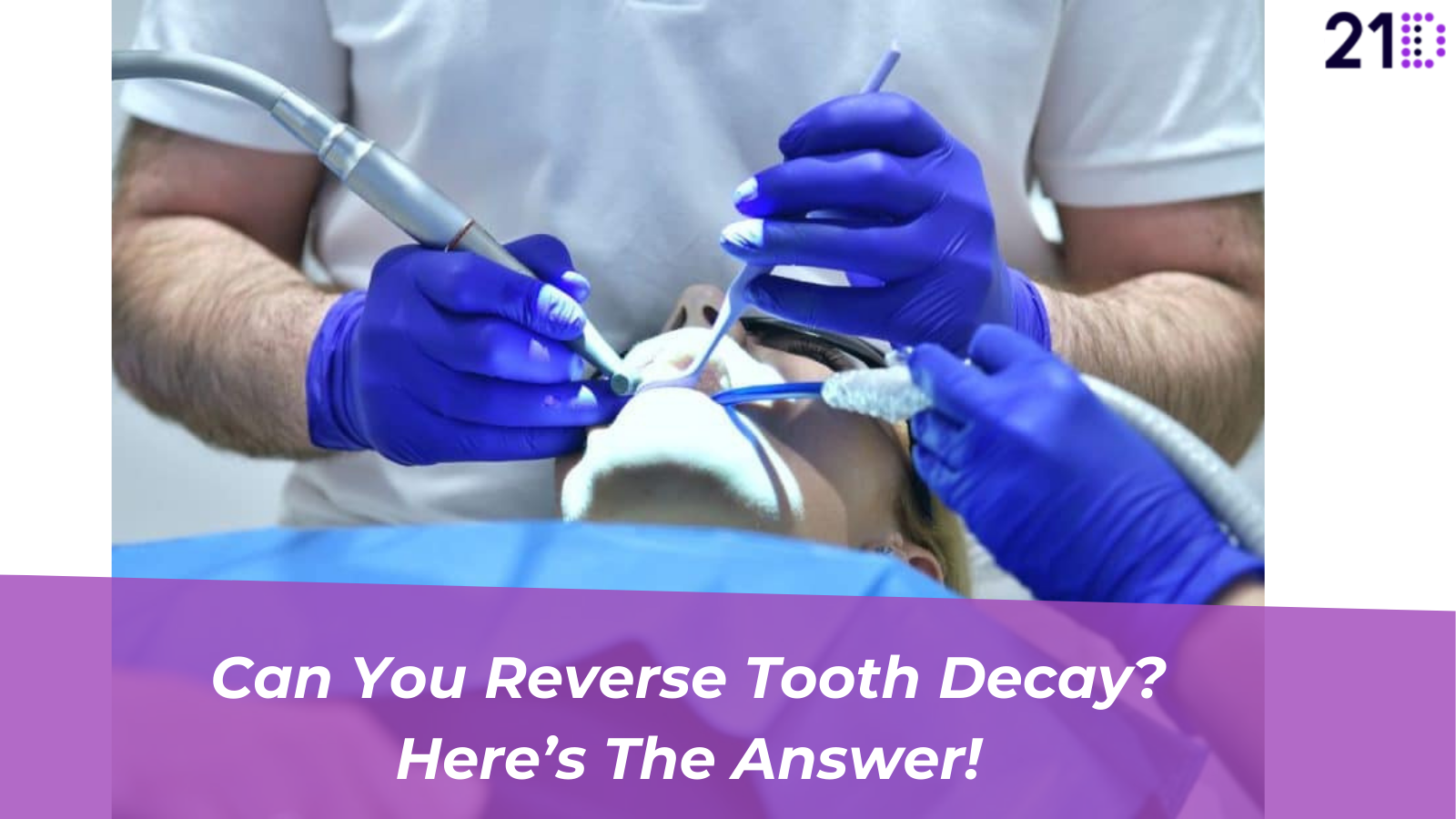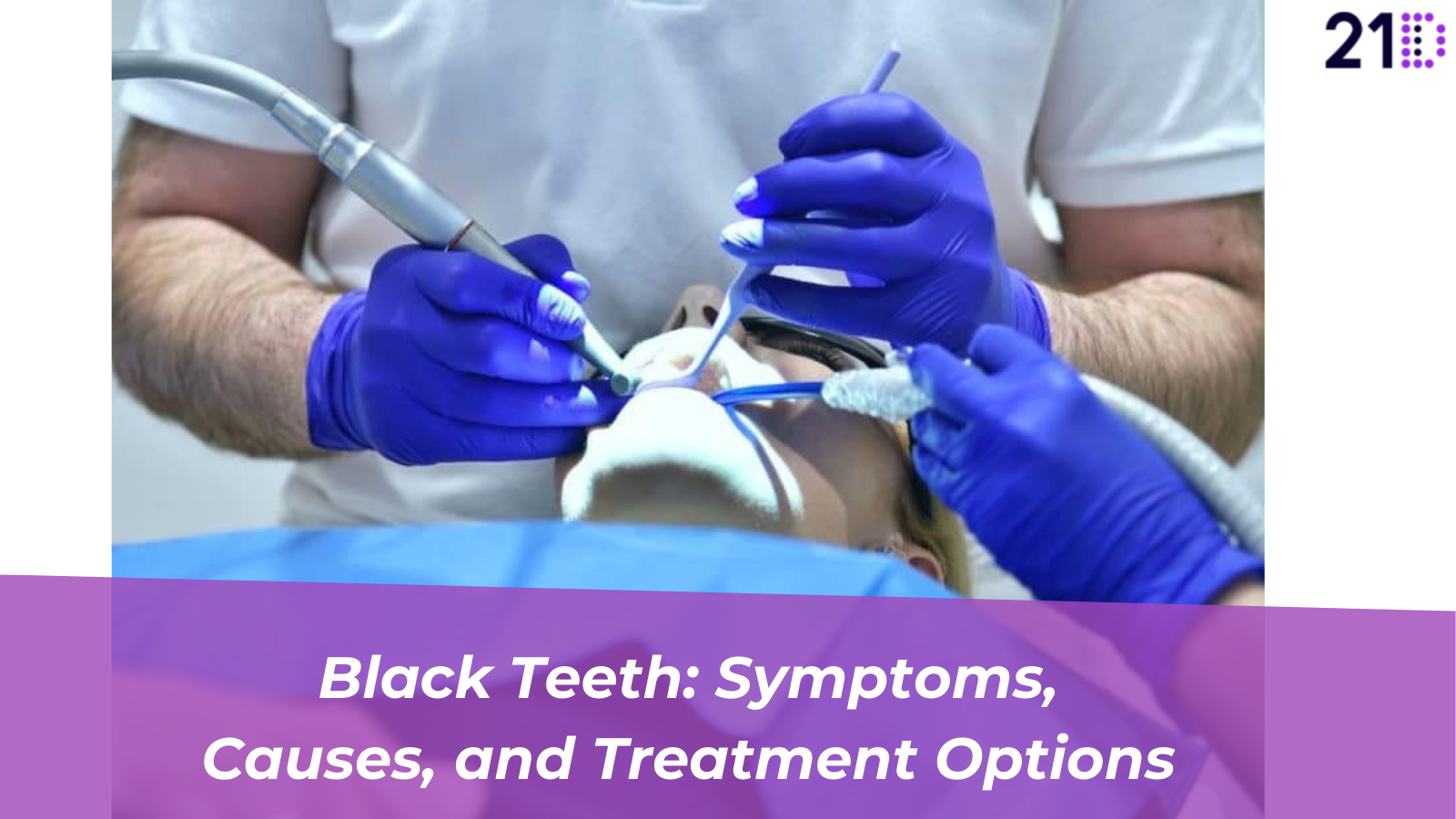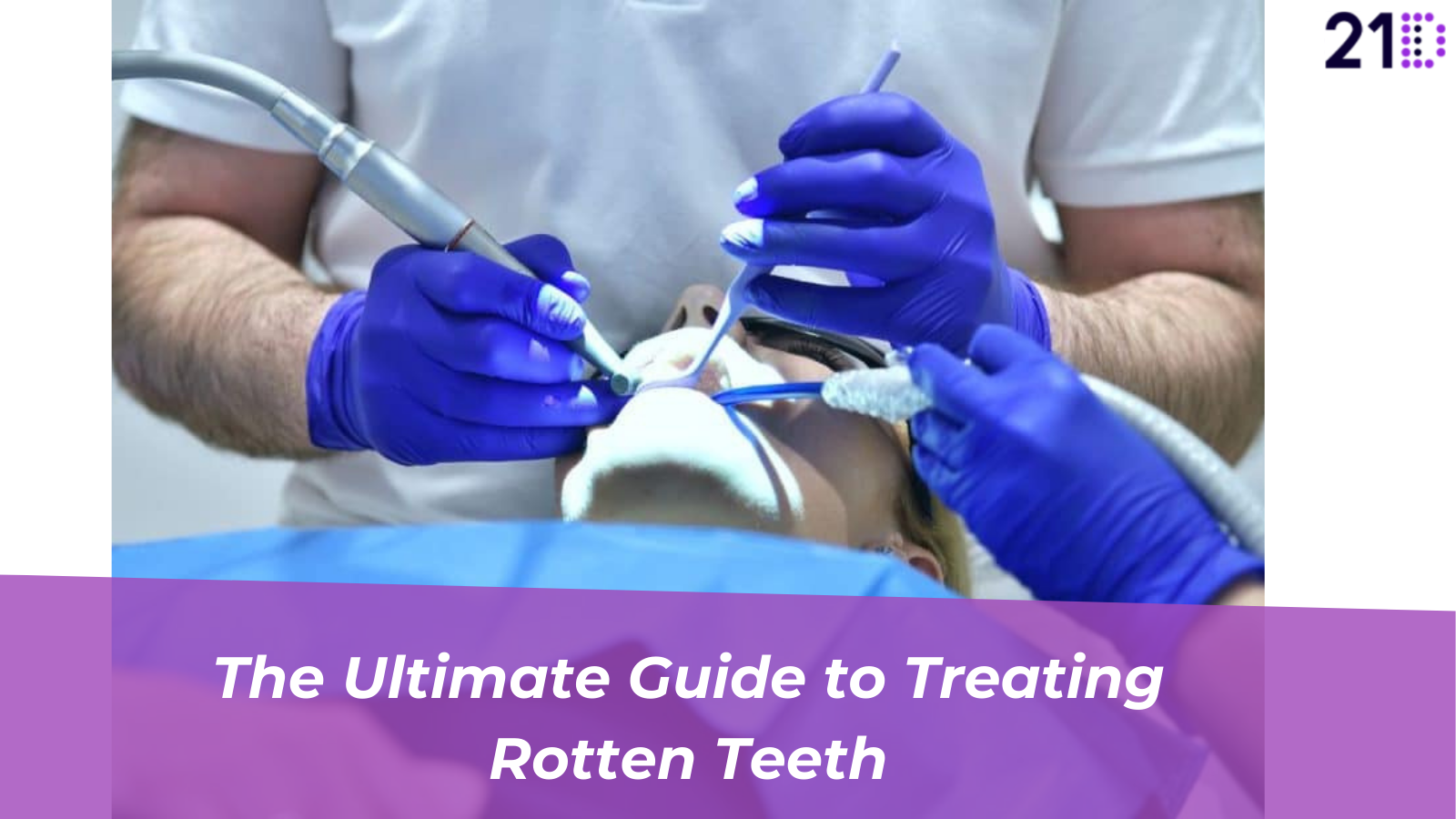Are you thinking about revamping your smile with dental implants? It’s no surprise! Implants are known for their natural look and long-lasting results. But to be honest, no medical procedure is entirely risk-free. While dental implants boast a high success rate, there may be times when one can have bad dental implants.
But before you give up on your Hollywood smile dreams, hear us out! This blog is not intended to discourage you from getting implants altogether. Instead, we want to equip you with the necessary knowledge so you can avoid rash decisions.
Here, we’ll discuss dental implants’ potential risks and complications and how to overcome them. So, let’s begin!
What Are Dental Implants?
Before we dive into the details of tooth implant side effects, it’s crucial to understand what dental implants are.
Imagine having tiny screws that can replace your missing tooth roots. This is the basic idea behind dental implants. These artificial tooth roots are typically made from biocompatible titanium and are surgically placed in your jawbone. Over time, they fuse with the bone, creating a solid foundation supporting replacement teeth.
Another critical piece that fits on top of this screw is the abutment, which acts as a connector between the implant and the replacement tooth, such as a crown, bridge, or denture. This abutment helps the artificial tooth to stay in place and function like a natural tooth.
S, if you want to replace your missing tooth with an implant, schedule a complementary session with our dental experts today!
How Does Dental Implant Work?
Now that we’ve covered the basics of dental implants let’s explore how they transform your smile. Here’s what a dental implant procedure looks like:
Tooth Extraction (if necessary)
It might seem obvious, but if you’re replacing a missing tooth, the dentist will likely need to extract it first.
Don’t worry; this is done under anaesthesia to ensure maximum comfort. After the extraction, you’ll need time to heal before the next step.
Jaw Preparation
Once you’ve healed from the extraction, your dentist will assess the strength of your jawbone to ensure it can support the implant.
Not everyone has a jawbone that’s naturally implant-ready. The dentist might recommend bone grafting if your jawbone isn’t strong or thick enough.
This involves adding bone material to your jawbone to create a sturdy base for the implant. Thankfully, bone grafting is a relatively standard procedure, and your dentist will discuss if it’s necessary for your case.
Moreover, if a graft is performed, there will be a waiting period of 4-5 months before moving on to the next stage of implant placement.
Implant Placement
Now comes the main event! After ensuring your jaw is ready, the dentist will make a small incision in your gum tissue to access the jawbone. Using specialised tools, they’ll carefully create a tiny opening in the bone where the implant screw will be placed.
This placement is crucial, as it needs to be precise for optimal functionality and aesthetics. Once the opening is ready, the implant is gently inserted and secured in the jawbone.
Following implant placement, your body must heal and allow the implant to integrate with the jawbone. This healing process can take several months. The implant site may be covered with a temporary cap or left to heal naturally during this time.
Abutment Placement
This part connects the implant to the artificial tooth. After the implant has integrated with the jawbone, your dentist will attach an abutment above the gum line.
This process involves opening the gum tissue to reveal the implant base and affixing a short metal rod. In some instances, the abutment may be placed simultaneously with the implant. The rod serves as the foundation for your artificial tooth.
Artificial Tooth Placement
Finally, the moment you’ve been waiting for! The dentist will attach the artificial tooth to the abutment, whether a crown, bridge, or denture.
This artificial tooth will be custom-made to match your surrounding teeth in size, shape, and colour, ensuring a natural and beautiful smile.
You can get a clear idea of the healing stages of dental implants here.
Signs Of A Bad Dental Implant
Now that you understand dental implants and their process let’s discuss some potential issues that may arise. Although most implants integrate smoothly, there may be signs that things could be going better. In this section, we will look at some red flags related to bad dental implants to watch out for.
Extended Period of Pain
After undergoing dental implant surgery, it is expected to experience some discomfort during the first week. However, if the pain continues or becomes difficult to handle beyond this period, it may indicate some issues with the implant.
Loose Implants
Dental implants are designed to be super solid and stable. Ideally, they should feel just like your natural teeth.
So, if you have an implant that feels loose or wobbly when you bite down or touch it with your tongue, that’s a definite red flag. A loose implant might be a sign of implant failure or bone loss around the implant.
Numbness
While temporary numbness around the implant site is possible after surgery, it should subside within a few days. However, persistent numbness in your lips, tongue, or gums can indicate nerve damage.
Risks Associated With Bad Dental Implant Surgery
While the earlier signs can be warning bells, it’s essential to understand the potential complications that might arise after dental implant surgery. Here’s a closer look at some of the key risks:
Infection
One of the most common tooth implant side effects is infection. Although dentists take strict precautions to reduce the risk, bacteria may enter the implant site during surgery or aftercare. Signs of infection include swelling, redness, pus drainage, and persistent pain. Early treatment with antibiotics is crucial to prevent further complications.
Sinus Issues (Upper Jaw Implants Only)
Dental implants in the upper jaw are very close to your sinus cavities. In rare cases, the implant can accidentally protrude into the sinus, leading to sinusitis (inflammation of the sinuses). Symptoms can include facial pain, congestion, and even a runny nose. If this occurs, your dentist will likely need to adjust the implant or perform additional surgery.
Failed Osseointegration
This fancy term means the implant fails to fuse with the jawbone. This can happen due to various factors, including infection, insufficient bone density, or smoking. If osseointegration fails, the implant won’t provide the necessary stability and will likely need removal.
Nerve Damage
Though uncommon, there’s a small risk of damaging nerves during implant surgery. This can lead to numbness, tingling, or pain in the lips, tongue, or chin. The severity of nerve damage can vary; some cases might resolve over time. However, it’s crucial to inform your dentist immediately if you experience any numbness after surgery.
Gum Disease (Peri-Implantitis)
Dental implants require proper oral hygiene to prevent gum disease like natural teeth. Peri-implantitis is an inflammation of the gum tissue around the implant, similar to gum disease around natural teeth. If left untreated, it can lead to bone loss and, ultimately, implant failure. Maintaining excellent oral hygiene and regular dental checkups are vital to preventing peri-implantitis.
Bone Loss Around Implants
Some patients might experience bone loss around the dental implant over time. This can be caused by various factors, such as overloading the implant, infection, or underlying health conditions. Regularly monitoring bone health around implants is crucial, and your dentist might recommend additional procedures to prevent further bone loss.
How Bad Dental Implants Affect Psychologically?
Apart from the potential physical risks associated with dental implants, we must remember that our smiles are a big part of our self-confidence! It’s natural to wonder if the disadvantages of dental implants can extend beyond the physical body.
While dental implants are designed to enhance your smile and boost your confidence, experiencing complications can have the opposite effect. Here’s how:
Disappointment And Frustration
Imagine investing time and money into a treatment for a beautiful smile, only to encounter problems. Whether it’s persistent pain, loose implants, or multiple surgeries to address complications, it can be emotionally draining and frustrating.
Loss of Confidence
A missing tooth or an unhealthy smile can damage self-esteem. Dental implants are supposed to rectify this, but encountering issues can bring back those feelings of insecurity. The fear of further problems or the implant failing altogether might make you hesitant to smile or laugh freely.
Anxiety And Stress
The uncertainty surrounding complications can be a source of significant anxiety and stress. You might constantly worry about the implant failing or the need for additional procedures. This can negatively impact your overall well-being.
A bad dental implant can have a significant impact on your psychological well-being. Hence, it becomes necessary to understand how to avoid such complications at first.
How Can You Avoid Any Complications From Bad Dental Implants?
Now that you know potential complications, you might wonder, “Is there anything I can do to avoid them?” Absolutely! By following these tips, you can significantly reduce the risk of problems and increase the chances of a successful implant experience:
Follow Post-Operative Instructions to a T
Your dentist will provide detailed instructions on caring for your implant site after surgery. These instructions are crucial for optimal healing and preventing infection. This might include specific guidelines for brushing, flossing, rinsing, and managing pain medication. Don’t hesitate to ask your dentist any questions you have about post-operative care.
Embrace the Soft Food Life (Temporarily)
Your dentist will likely recommend a soft diet for the first few weeks after surgery. This allows the implant site to heal correctly without excessive pressure. Resist the urge to chew on tough or chewy foods that could dislodge the implant.
Ditch the Cigarettes
Smoking is a significant risk factor for implant failure. Smoking restricts blood flow to the implant site, hindering the healing process and increasing the risk of infection. If you’re a smoker and considering implants, quitting is highly recommended for a successful outcome.
Brush And Floss Like a Pro
Maintaining excellent oral hygiene is paramount for the long-term success of your implants. This means brushing twice daily and flossing daily to remove plaque and bacteria around the implant site. Your dentist might also recommend a unique cleaning tool to ensure proper hygiene around the implant.
Patience is Key – Give Your Implant Time to Heal
Healing after implant surgery takes time. Don’t be discouraged if you don’t see immediate results. Following your dentist’s instructions and allowing your body ample time to heal is crucial for successful osseointegration (fusion between implant and jawbone).
Choosing The Right Dental Implant Clinic
Finding a qualified and experienced dentist skilled in dental implant procedures minimises risks and maximises success. Here are some factors to consider when choosing a clinic:
Dentist’s Qualifications
It is essential to find the right dentist for dental implant surgery. Look for someone with advanced training and certification in this area. Research their experience and success rate with implant procedures.
Clinic’s Reputation
Read online reviews and ask your friends or family for recommendations. Choose a clinic known for its high standards of care and patient satisfaction.
Technology And Facilities:
Ensure the clinic utilises advanced technology for diagnostics, implant placement, and surgical procedures. Modern equipment contributes to a smoother and more precise surgery.
Cost And Transparency
Dental implant procedures can vary in price. Get clear and transparent pricing information upfront, and don’t hesitate to discuss payment options.
Following these steps and maintaining open communication with your dentist can significantly reduce the risk of complications, and thanks to dental implants, you can enjoy a healthy, beautiful smile.
Why 21D Is The Perfect Clinic For Your Dental Implants?
At 21D, we understand the life-changing potential of dental implants. Founded by a team of highly experienced clinicians and backed by a nurturing ethos, we’re dedicated to providing a comfortable and successful implant experience.
Here’s why 21D could be the perfect fit for your smile goals:
Faster Treatment
We at 21D boast a streamlined approach to dental implants. We aim to complete the entire process, from initial consultation to final restoration, in a significantly shorter timeframe than traditional implant methods. This is achieved through our use of advanced technology and meticulous planning.
Minimally Invasive Techniques
At 21D, we prioritise minimally invasive procedures, which reduce discomfort and ensure a smoother healing process. Our computer-guided implant placement ensures precision and minimises the need for extensive gum cutting.
Focus On Aesthetics
At 21D, achieving a natural-looking smile is paramount. We work closely with you to design implants that seamlessly integrate with your surrounding teeth, ensuring a beautiful and functional outcome.
Transparency And Affordability
We at 21D believe in transparent pricing and aim to make dental implants accessible to more patients. We also offer clear cost breakdowns and have options to divide the total implant cost into small EMIs that suit your budget.
Book a free consultation with our expert implantologists today to eliminate the danger of getting bad dental implants.
Conclusion
Dental implants offer a fantastic solution for replacing missing teeth, boosting your smile, and improving your quality of life. While the possibility of bad dental implants might seem daunting, understanding the risks and taking steps to minimise them empowers you to make informed decisions.
You can significantly reduce the risk of complications by following a healthy lifestyle, choosing a skilled dentist, and meticulously following post-operative care. So, don’t let the fear of imperfect dental implants hold you back from achieving your dream smile!
FAQs
Are Dental Implants Safe?
Dental implants are generally safe and have a high success rate. However, like any surgery, there are potential risks like infection or nerve damage. Consulting a qualified dentist can help determine if implants are right for you.
What Is The Cost Of Dental Implants?
The cost of dental implants varies depending on factors like the number of implants needed and location. In the UK, a single implant can range from £1,500 to £3,000. For more details, you can read our guide on the cost of dental implants.
Who Can Get Dental Implants?
Generally, adults with good overall health and sufficient jawbone density are good candidates for dental implants. Smokers or those with uncontrolled gum disease might require additional treatment before implants.
Are Dental Implants Better Than Dentures?
Dental implants offer a more natural look and feel compared to dentures. They also improve chewing function and prevent bone loss. However, dentures might be a more affordable option for some. You can read this guide on the difference between dentures and implants for a clear understanding.




